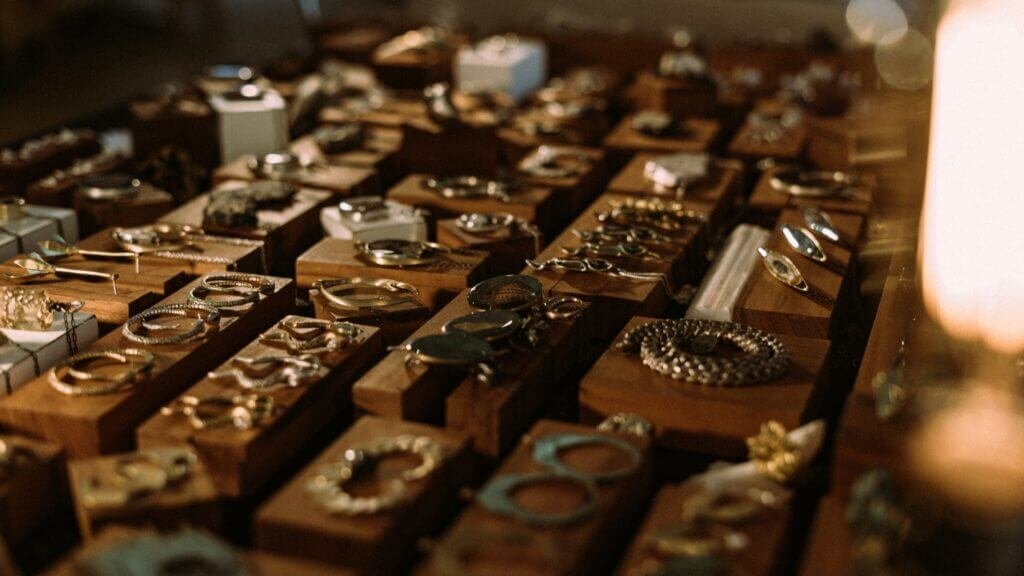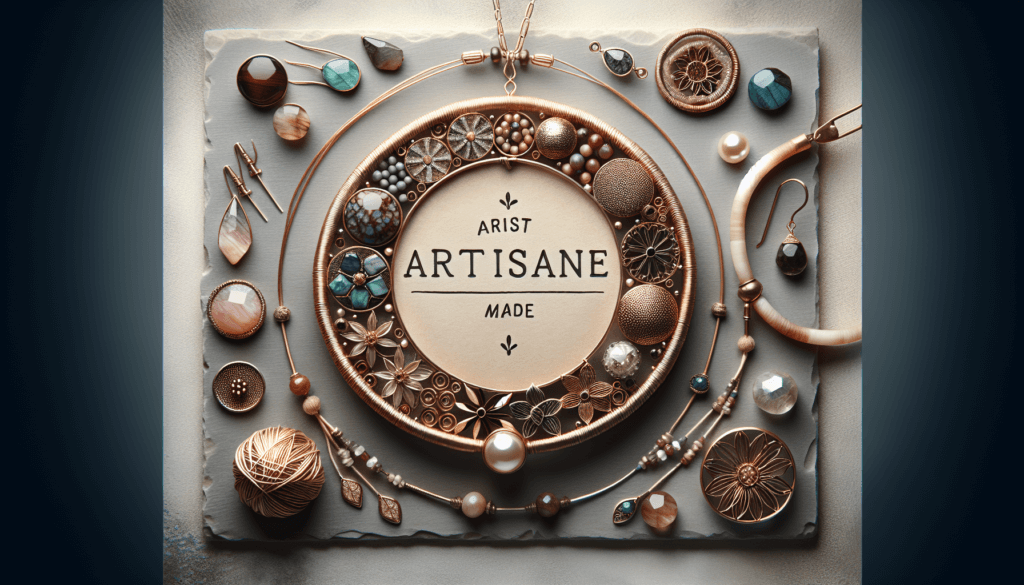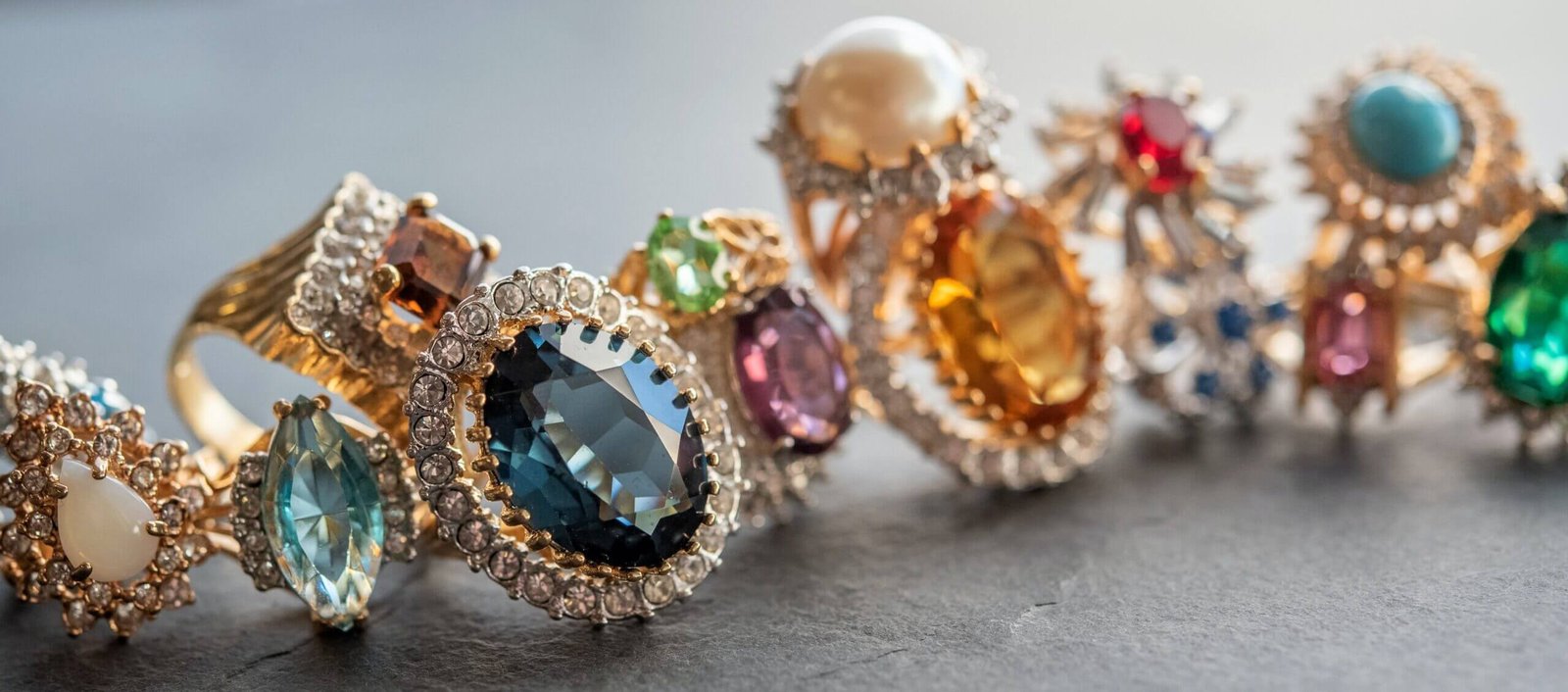What Does Artisan Made Jewelry Mean?
What Does Artisan Made Jewelry Mean? With an aura of charm and prestige, artisan-made jewelry sparks curiosity among many. As you stroll down fashion lanes, lavish boutiques or scroll through the realms of online shopping, you might have come across ‘artisan made’ tags. But have you ever wondered what it actually means? This article will illuminate your understanding of what ‘artisan made’ signifies in the world of jewelry, shedding light on the beauty and intricate care that goes into each piece of this handcrafted treasure, that makes it not just a mere accessory but a tale of the craftsmanship and tradition.

Understanding the Term ‘Artisan’
When seeking to understand the intricacies of a term, it’s vital to start from the rudimentary level – the definition.
Definition of an Artisan
You may have heard the term “artisan” thrown around quite a bit, especially in the sectors of crafts, food, and of course, jewelry. But what exactly does it mean? An artisan is a worker skilled in a trade, especially one that involves making things by hand. This craftsmanship often lends to direct involvement in the design and production processes, making each piece uniquely personal. Is A Jewelry Maker An Artist Or Artisan?
Historical Context of Artisans
Artisans have formed the backbone of many historical societies for centuries. If you delve into the annals of history, you’ll find that artisans held an esteemed place in communities. From the prehistoric man carving tools out of stones to the mondegreen of experts churning out intricate jewelry designs, artisans have not only been preserving unique skills and crafts but have also significantly contributed to societal growth.
Examples of Artisan Crafts
The scope of artisanal work extends far and wide. These crafts include those as popular as pottery, woodwork, bakery, and leatherwork, to name a few. Artisan crafts are recognized for their intricate detailing, which is achieved through a time-consuming process and loads of dedication.
Artisan in the Jewelry World
The world of jewelry is vast, and the artisans play a crucial role in it. Knowing what signifies an artisan jeweler in everyday language can amplify your grasp of the subject. https://git.or.th/
When a Jeweler is Considered an Artisan
Not all jewelers are considered artisans. An artisan jeweler is one involved in the entire process of jewelry production. From conceptualizing designs to hand-picking materials and personally handcrafting each piece, artisan jewelers pour their heart and soul into the creation of each unique piece of jewelry.
Different Types of Artisan Jewelers
Like the multifaceted world of jewelry, artisan jewelers too come in various types. Some specialize in using specific materials, such as metals or gemstones, while others favor specific styles, like vintage or minimalist.
Recognition of Artisan Jewelers
Artisan jewelers continue to gain recognition for their work. Their skills, creativity, and devotion to their craft distinguishes them from mass producers. Furthermore, the personal narratives embedded in each unique piece make them valued players in the industry.

Characteristics of Artisan Made Jewelry
Artisan-made jewelry stands out due to certain specific characteristics. Understanding these distinguishes between artisan-made pieces and mass-produced equivalents.
Handmade Nature
The most distinctive aspect of artisan-made jewelry is its handmade nature. This doesn’t just mean a machine did not make it, rather, it also signifies the personal effort, time, and love invested in its creation.
Distinctive Style
Each artisan has a unique style that reflects in their artwork. This distinctive style sets artisan-made jewelry apart and is often a reflection of their personal experiences and inspirations.
Quality of Materials Used
Artisan jewelers often hand-pick high-quality materials to match their designs. This meticulous selection process ensures that every piece of jewelry is crafted to attract admiration and lasting usage.
Care and Attention to Detail
Artisan jewelry usually exceeds the level of design complexity seen in machine-made accessories. The fine detailing, varying textures, and uniquely set stones are all a testament to the artisans’ care and attention to detail.
Process of Making Artisan Jewelry
Having briefly introduced artisan jewelry, let’s walk you through the typical process involved in its creation.
Designing
Everything starts with a design. Artisans carefully conceptualize and sketch out their design, drawing inspiration from a variety of sources such as nature, history, culture, or personal experiences.
Material Selection
Successfully capturing the essence of the design relies heavily on material selection. Artisans painstakingly choose the best-suited materials, balancing the aesthetics, quality, and overall vibe of the piece.
Crafting Process
Once the design is sorted and materials chosen, the hands-on crafting process begins. Here, the artisan applies their skills to turn raw materials into an exquisite piece of jewelry.
Finalizing and Polishing
Finally, each piece is carefully polished and quality checked to ensure it’s perfect before it reaches you.

Understanding the Value of Artisan Made Jewelry
Artisan-made jewelry carries multiple layers of value that extend beyond the immediately visible.
Emotional Value
Artisan-made jewelry often has an enriching backstory or symbolism attached that instills an emotional connection.
Monetary Value
Due to the high-quality materials used and the intensive labor that goes into the creation of handmade artisan jewelry, such pieces often carry a higher monetary value than mass-produced counterparts.
Social Value
Owning artisan-made jewelry puts you in support of independent artists and their crafts, a social value that more consumers are recognizing and appreciating.
Sustainability Value
Unlike mass-produced jewelry, artisan pieces are often created with sustainability in mind, minimizing environmental impact with conscious sourcing and crafting.
Comparing Mass-produced Jewelry and Artisan Made Jewelry
Given their differences, comparing these two types of jewelry can be intriguing.
Quality Differences
Artisan jewelry often uses higher quality materials and craftsmanship, while mass-produced items may leverage cheaper materials and less intricate designs.
Craftsmanship Differences
Artisan jewelers painstakingly create each piece by hand, ensuring unique designs and superior quality. Conversely, mass-produced jewelry is made using machines, which often results in uniform, less unique designs.
Individuality and Uniqueness
The one-size-fits-all mind-set doesn’t apply to artisan-made jewelry. Every piece is exclusive, radiating uniqueness. Mass-produced jewelry, though, tends to have a repetitive and monotonous feel due to standardized designs.
Price Differences
While artisan-made jewelry might have a higher initial price tag due to the labor-intensive process and quality materials, the value it offers in terms of longevity, uniqueness, and emotional connection may justify the investment.

Popular Styles and Types of Artisan Made Jewelry
Artisan jewelers tend to create pieces that reflect their unique style and preferences. Here are a few popular styles:
Art Deco
This style is characterized by geometric designs, bold colors, and luxurious details, paying homage to the bold and innovative era of the 1920s.
Boho Chic
Boho chic jewelry encapsulates the free-spirited and earthy vibe, characterized by vibrant colors, natural elements, and weave patterns.
Minimalist
Minimalist artisan jewelry stands out via its simplicity, elegance, and restrained design elements, following the principle of “less is more.”
Vintage
Vintage-inspired artisan jewelry echoes the charm of bygone eras, incorporating intricate detailing, timeworn motifs, and often, antique gemstones or metals.
Caring for Artisan Made Jewelry
Much like any other precious belonging, artisan jewelry also requires proper care and attention.
Cleaning Methods
Regular, gentle cleaning can help retain the shine of your artisan jewelry. Always use a soft cloth or gentle soap solution and remember to be extra careful with pieces containing delicate gemstones or materials.
Storage Tips
Never store pieces in a heaped pile or in compressed spaces. Individual soft pouches or separate compartments in a jewelry box can keep them safe from scratches and tarnishing.
Maintenance Suggestions
Regular checks can help identify minor damages before they turn serious. Be mindful of any loose gems, broken links, or tarnishing, and aim to get professional help when needed.
How Often to Wear
Artisan-made jewelry is artistic and durable, meant to be worn. However, exercising caution during certain activities or in harsh environments can sustain its longevity.

Choosing Artisan Jewelry
Choosing the perfect piece of artisan jewelry is a mixture of personal styles, quality, and understanding the story behind the piece.
Identifying True Artisan Work
The first step is learning to identify genuine artisan work, which features high-quality materials, hand-crafted designs, and intricate detailing.
Choosing Based on Personal Style
Choose pieces that align with your personal style and preferences. Whether you favor minimalist designs or love bold statement pieces, there’s artisan jewelry to suit every style.
Assessing Quality and Value
Consider the quality of materials and craftsmanship in the piece. Remember that true value extends beyond just the price-tag and lies in the design, creativity, and unique features of the piece.
Understanding the Story Behind the Piece
Artisan jewelry often carries a unique story behind its creation – understanding that adds intangible value to your chosen piece.
Contributions and Impact of Artisan Jewelry in the Fashion Industry
The artisan jewelry movement has contributed significantly to the fashion industry.
Influence on Fashion Trends
Artisan jewelers, with their diverse styles and creativity, often act as trendsetters, influencing fashion trends on a wide canvas.
Job Creation and Economic Impact
The artisan jewelry industry creates a plethora of jobs, from designers and craftsmen to sales and marketing professionals, thereby positively influencing the economy.
Promotion of Individual Expression
The individuality of artisan jewelry pieces provide wearers with unique means of self-expression, a redefining influence on personal styles and fashion norms.
Sustainability Efforts
Artisan jewelers often uphold sustainable practices in their work, influencing the industry towards ethical and eco-friendly practices.
In conclusion, artisan-made jewelry is a treasure, brimming with eye-catching designs, high-quality materials, personal touches, and a wealth of intangible values. Whether you’re an ardent jewelry lover or an occasional accessorizer, including artisan-made pieces in your collection brings you a share in preserving age-old craftsmanship, supporting local economies, and making a style statement that echoes your personality like nothing else.



